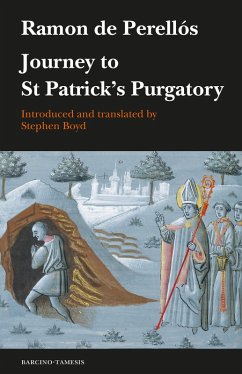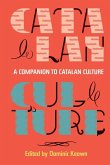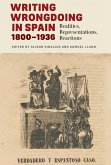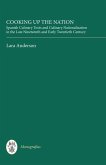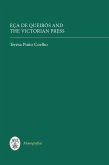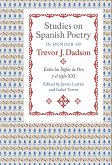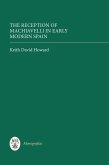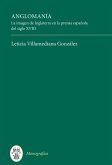In autumn 1397, Viscount Ramon de Perellós left the papal palace in Avignon to travel to St Patrick's Purgatory, famous throughout Europe as a gateway to the next world. There, he spent twenty-four hours in an underground cavern, where he claimed to have travelled through the nine fields of Purgatory, accompanied by demons, before entering the Earthly Paradise and catching a glimpse of Heaven.
In autumn 1397, Viscount Ramon de Perellós, a Catalan nobleman, soldier and diplomat, left the papal palace in Avignon to travel to St Patrick's Purgatory in Donegal, in the northwest of Ireland. St Patrick's Purgatory, an underground cavern on Station Island in Lough Derg, was famous throughout Europe as a gateway to the next world, and the Viscount wanted to ascertain if the soul of his recently deceased friend and master, King John I of Aragon, was, if not in Heaven, then at least in Purgatory. Ramon spent twenty-four hours in the cavern, where he claimed to have travelled through the nine fields of Purgatory, accompanied by demons, before entering the Earthly Paradise and catching a glimpse of Heaven.
This book provides a richly annotated translation of Ramon's account of his journeys, both earthly and spiritual. An extensive introduction sets his Viatge al Purgatori in context, examining Ramon's life, the factors that motivated the trip, the history of St Patrick's Purgatory, the literary influences on the account, its historicity, its afterlife and its textual history. The Viatge notably provides important first-hand observations on Gaelic society and customs, by a cosmopolitan traveller with a keen eye for detail, and went on indirectly to inspire Lope de Vega's El mayor prodigio o El purgatorio en vida, and Calderón de la Barca's (1600-1681) El purgatorio de San Patricio. Part travelogue, part vision literature, with aspects of hagiography, homily, autobiography, chivalric romance and anthropological essay, the text is a fascinating and entertaining window into a medieval Catalan nobleman's world view.
In autumn 1397, Viscount Ramon de Perellós, a Catalan nobleman, soldier and diplomat, left the papal palace in Avignon to travel to St Patrick's Purgatory in Donegal, in the northwest of Ireland. St Patrick's Purgatory, an underground cavern on Station Island in Lough Derg, was famous throughout Europe as a gateway to the next world, and the Viscount wanted to ascertain if the soul of his recently deceased friend and master, King John I of Aragon, was, if not in Heaven, then at least in Purgatory. Ramon spent twenty-four hours in the cavern, where he claimed to have travelled through the nine fields of Purgatory, accompanied by demons, before entering the Earthly Paradise and catching a glimpse of Heaven.
This book provides a richly annotated translation of Ramon's account of his journeys, both earthly and spiritual. An extensive introduction sets his Viatge al Purgatori in context, examining Ramon's life, the factors that motivated the trip, the history of St Patrick's Purgatory, the literary influences on the account, its historicity, its afterlife and its textual history. The Viatge notably provides important first-hand observations on Gaelic society and customs, by a cosmopolitan traveller with a keen eye for detail, and went on indirectly to inspire Lope de Vega's El mayor prodigio o El purgatorio en vida, and Calderón de la Barca's (1600-1681) El purgatorio de San Patricio. Part travelogue, part vision literature, with aspects of hagiography, homily, autobiography, chivalric romance and anthropological essay, the text is a fascinating and entertaining window into a medieval Catalan nobleman's world view.
Dieser Download kann aus rechtlichen Gründen nur mit Rechnungsadresse in A, D ausgeliefert werden.

